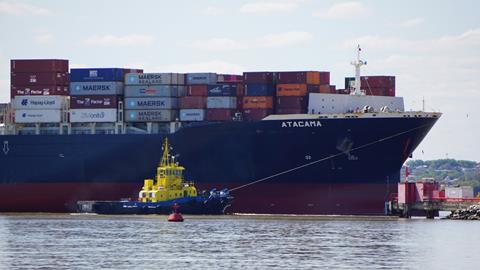The International Meat Trade Association’s Katie Doherty highlights how Government policy must support strategic two-way trade that works in balance with domestic food production to achieve a stable food supply in the UK.
Just as the National Farmers’ Union (NFU) is calling on this Government to prioritise food security, so are we. We want the Government to think about food security both from a national food production standpoint but also a trade point of view. UK farmers need to be given the policy framework to produce food sustainably – both environmentally and financially.
Food security isn’t simply about producing enough – it’s also about strategic access, distribution and diversity of supply. In a world increasingly vulnerable to climate disruptions, geopolitical tensions and animal disease outbreaks, resilient supply chains are critical. A robust, balanced approach – anchoring domestic production while fostering two-way trade – is key to weathering these pressures and sustaining consistent, safe and nutritious food availability across the UK.
The film A World Without Cows makes a powerful point: until recently, throughout history farmers have been looked to for the important role of feeding the population. They were properly recognised for this. However, fast-forward to 2025 and livestock farmers are now often painted as the bad guys in contrast to the perceived beacon of hope promised by lab-grown meat production.
This is wrong. Farmers are stewards of the land in this country, and across the world are vital in feeding the burgeoning global population. In many cases, farmers are actively innovating – embracing regenerative techniques, investing in low-carbon technologies and collaborating with scientists to improve livestock genetics and welfare outcomes. They’re driving forward a resilient, accountable food system.
Trade and production must work hand in hand
Trade must be seen as complementary to domestic production – integral to the UK’s food security. Imports play a stabilising role when domestic supplies dip, helping keep supermarket shelves stocked, restaurants supplied and manufacturers equipped to deliver the diverse, high-quality products British consumers expect and enjoy.
Though I can see where the concern stems from for farmers about non-UK beef appearing on shelves, I think the furore about Uruguayan beef appearing in ASDA recently was very much overblown. According to AHDB, UK beef production in 2025 is expected to decline 5% compared with last year, owing to lower cattle availability. Given this slight dip, there is a need to meet any gap in supply, and Uruguayan beef is one origin that is well-placed to do that.

Uruguay is known around the world for its high-quality meat, and, in fact, its cattle are mainly Angus and Hereford. Uruguay is focused on exports – exporting around 80% of its total production. Uruguayan beef production is predominantly pasture-based, with cattle raised on extensive grasslands that span much of the country – contributing to its reputation for high-quality beef.
Just as our farmers want to be able to export their beef around the world, so do farmers in Uruguay. One person’s export is another’s import! We support British beef having a place in global consumer choice – and we recognise that the same principle works in reverse.
This Government needs to work to ensure that there is a better certainty for our producers to produce their excellent grass-fed beef but must also review whether our framework for imports, especially quota access, is sufficient to ensure resilience in food supply going forward. This will help ensure consistent access to high-quality protein for consumers and stability for our food system in an increasingly volatile world.


















